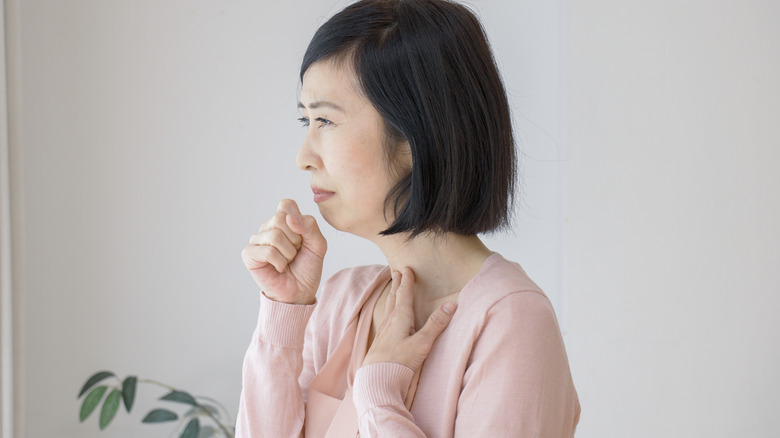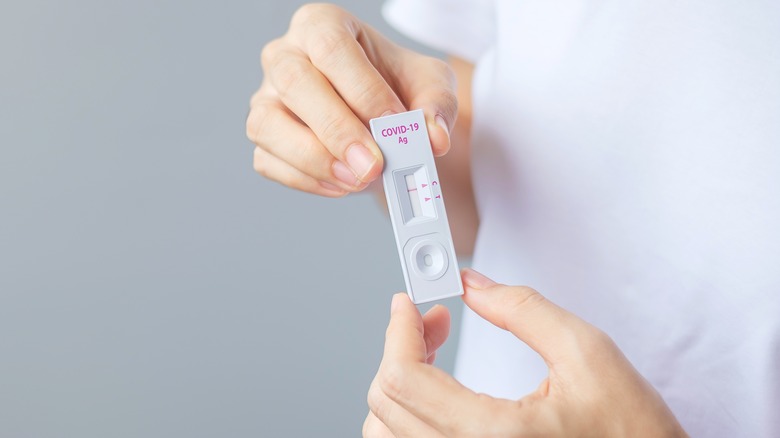How Long Are You Really Contagious When You Have COVID-19?
Testing positive for COVID-19 is never a good thing, and in addition to focusing on getting well, it is recommended that you isolate yourself at home to avoid spreading the virus to others. Experts from the Centers for Disease Control and Prevention (CDC) recommend that people who have COVID-19 should isolate themselves for at least five days and wear a mask if they are around others in the house, explaining that day 0 is the date of exposure and day 1 is the first full day after.
It's important to take precautions because COVID-19 spreads easily. Dr. Daniel Pastula, a UCHealth associate professor of neurology, infectious diseases and epidemiology for the University of Colorado School of Medicine, told UCHealth that one reason why it is so contagious is because the virus is "novel," or new to humans, which means our bodies haven't developed a way to fight it yet. We know that COVID-19 spreads easily, but how long are we really contagious when we have the virus?
Research sheds some light on the answer
New research published in JAMA Network Open attempts to answer that question. A small study followed 40 participants, 36 of whom were vaccinated and had one booster shot. Results showed that 75% of the participants showed positive results on rapid antigen tests on day 6. However, half of those study participants had a "culturable virus" at that point in time, meaning they were still infectious, while the other half was not. This suggests some people may be isolating themselves for longer than necessary.
In addition, researchers concluded that the absence of symptoms may not be a reliable way to know whether or not you're still contagious. Thus it's recommended to follow masking protocols through day 10. Another 2020 study published in The Lancet Microbe showed that people with COVID-19 are most contagious within the first week, stressing the significance of isolation right away. These researchers also concluded that clearing the virus happened more quickly for asymptomatic individuals than symptomatic individuals.
While there may be no definitive, clear answer yet, following the COVID-19 best practices laid out by the CDC can help protect you and your family.


